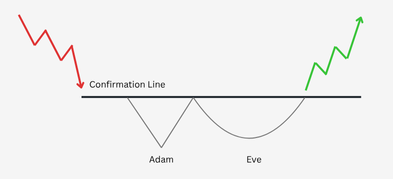
Ultima Markets App
Trade Anytime, Anywhere
Important Information
This website is managed by Ultima Markets’ international entities, and it’s important to emphasise that they are not subject to regulation by the FCA in the UK. Therefore, you must understand that you will not have the FCA’s protection when investing through this website – for example:
- You will not be guaranteed Negative Balance Protection
- You will not be protected by FCA’s leverage restrictions
- You will not have the right to settle disputes via the Financial Ombudsman Service (FOS)
- You will not be protected by Financial Services Compensation Scheme (FSCS)
- Any monies deposited will not be afforded the protection required under the FCA Client Assets Sourcebook. The level of protection for your funds will be determined by the regulations of the relevant local regulator.
Note: Ultima Markets is currently developing a dedicated website for UK clients and expects to onboard UK clients under FCA regulations in 2026.
If you would like to proceed and visit this website, you acknowledge and confirm the following:
- 1.The website is owned by Ultima Markets’ international entities and not by Ultima Markets UK Ltd, which is regulated by the FCA.
- 2.Ultima Markets Limited, or any of the Ultima Markets international entities, are neither based in the UK nor licensed by the FCA.
- 3.You are accessing the website at your own initiative and have not been solicited by Ultima Markets Limited in any way.
- 4.Investing through this website does not grant you the protections provided by the FCA.
- 5.Should you choose to invest through this website or with any of the international Ultima Markets entities, you will be subject to the rules and regulations of the relevant international regulatory authorities, not the FCA.
Ultima Markets wants to make it clear that we are duly licensed and authorised to offer the services and financial derivative products listed on our website. Individuals accessing this website and registering a trading account do so entirely of their own volition and without prior solicitation.
By confirming your decision to proceed with entering the website, you hereby affirm that this decision was solely initiated by you, and no solicitation has been made by any Ultima Markets entity.
I confirm my intention to proceed and enter this website Please direct me to the website operated by Ultima Markets , regulated by the FCA in the United KingdomIs JEPQ a Good Buy? Is It Profitable?
If you like the long-term story behind Big Tech but also want regular cash hitting your account, JEPQ, which the JPMorgan Nasdaq Equity Premium Income ETF, is probably already on your radar. It mixes a tech-tilted stock portfolio with a covered-call overlay to pay monthly distributions. The trade-off is simple: you’ll likely get steadier cash flow and a smoother ride than a pure Nasdaq tracker, but you’ll give up part of the upside in powerful rallies.
In this article, we’ll explain what JEPQ is, how the income is generated, who it suits, how it compares with popular alternatives, and a simple checklist to decide whether it deserves a spot in your portfolio.

What Is JEPQ?
JEPQ is an actively managed ETF that aims to deliver current income while still participating in the growth of Nasdaq-style large caps. The portfolio holds a curated basket of mega-cap growth names, such as Microsoft, Apple, Alphabet, Amazon, NVIDIA and peers, and then sells call options on a Nasdaq reference (typically via equity-linked notes, or ELNs).
- Goal: Income + partial participation in tech-led equity markets
- Distributions: Monthly (variable)
- Fee: 0.35% expense ratio
- Core idea: Exchange a slice of upside for option premium you can spend or reinvest
How Does JEPQ Generate Income?
JEPQ’s cash flow comes from two sources:
- Option Premiums
The fund systematically sells call options tied to a Nasdaq reference. It collects premiums up front, which are a major source of the monthly payouts. - Stock Dividends
The underlying mega-cap companies also pay dividends. These are a smaller slice than the option income but still help.
Because the income depends on market volatility and the pricing of options, payouts can vary from month to month. Higher volatility means more option premiums, which can increase the distribution, while calm markets result in lower payouts.
The Built-In Trade-Off
Selling calls is not a free lunch. In a strong bull market, especially during melt-ups in mega-cap tech, the written calls can cap upside, so JEPQ often lags a pure Nasdaq tracker. In range-bound or choppy markets, the premium income can help cushion drawdowns and smooth the ride.
Think of JEPQ as an income-first, growth-second way to hold tech.
The Trade-Off: Capped Upside vs. Regular Income
One of the primary features of JEPQ is the covered-call strategy, which can limit upside during strong bull markets. If you’re thinking about investing in JEPQ, it’s crucial to understand the trade-off. While you get monthly income, there are times when the fund will underperform a pure growth tracker like QQQ (Nasdaq-100 ETF) during periods of rapid market growth.
This is great for income-focused investors who want to smooth the volatility of a tech-heavy portfolio, but not ideal for those looking to maximize gains in a soaring market.
Is JEPQ a “Good Buy”?
Now that you understand how JEPQ works, let’s dive into who will actually benefit from this ETF. JEPQ is not for everyone, and understanding why you’re buying it will help you decide if it fits your strategy.

JEPQ can be a good buy if you want:
- Monthly cash flow from a brand-name manager.
- Exposure to Big Tech without going full-beta Nasdaq.
- A smoother experience than a pure growth tracker when markets chop sideways.
JEPQ may not be ideal if you want:
- Maximum upside in roaring bull markets (the call overlay will frustrate you).
- Fixed, predictable income (payouts vary with volatility).
- The simplest tax profile in a taxable account (call-driven income can be taxed differently from qualified dividends; consider holding in a tax-advantaged wrapper where possible).
JEPQ vs Popular Alternatives
QQQ (Nasdaq-100 tracker)
Best for: Investors who want full exposure to tech growth with uncapped upside. Expect better performance during strong bull markets, but no monthly income.
QYLD (Global X Nasdaq-100 Covered Call)
Best for: Income-focused investors who want a heavier options overlay than JEPQ. Higher fees (0.60%) and a stronger cap on upside.
JEPI (JEPQ’s S&P 500 sibling)
Best for: Those looking for a broader sector mix with a similar income-oriented strategy. More defensive than JEPQ with exposure to the S&P 500.
Where JEPQ Can Fit In a Portfolio
So, now you know how JEPQ works. But how does it fit into your overall strategy? JEPQ is a great satellite position if you’re looking for income but don’t want to sacrifice all growth potential. Here’s where it can fit in:
- Income Sleeve Around a Core: Hold JEPQ alongside your core equity index fund(s) and high-quality bonds to fund regular withdrawals.
- Tech-Tilted Yield Alternative: Replace a portion of a growth allocation with JEPQ if you like tech’s long runway but prefer cash now over every last bit of upside.
- Pairing With JEPI: Blend JEPQ (Nasdaq tilt) with JEPI (S&P tilt) for a more balanced equity-income profile.
Should You Buy JEPQ Right Now?

If your goal is income from Big Tech with a calmer ride, JEPQ is a sensible, mainstream choice, especially as a satellite position. If your goal is maximum long-term compounding, stick with a plain Nasdaq tracker and accept the bumps. As long as you go in with eyes open about the upside cap and variable payouts, JEPQ does exactly what it says on the tin.
Disclaimer: This content is provided for informational purposes only and does not constitute, and should not be construed as, financial, investment, or other professional advice. No statement or opinion contained here in should be considered a recommendation by Ultima Markets or the author regarding any specific investment product, strategy, or transaction. Readers are advised not to rely solely on this material when making investment decisions and should seek independent advice where appropriate.












